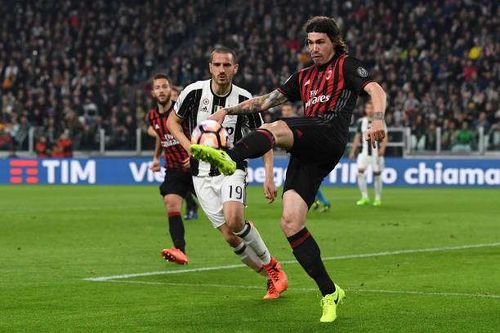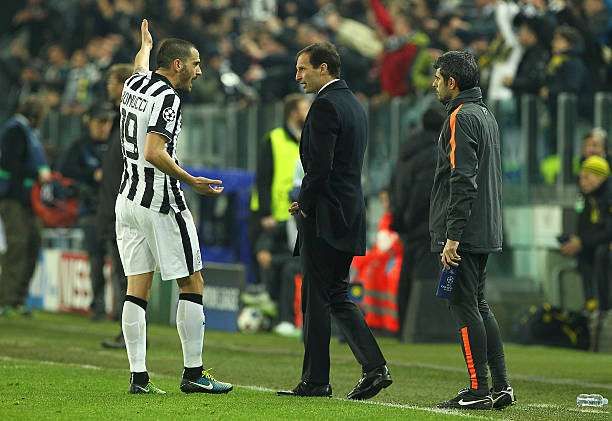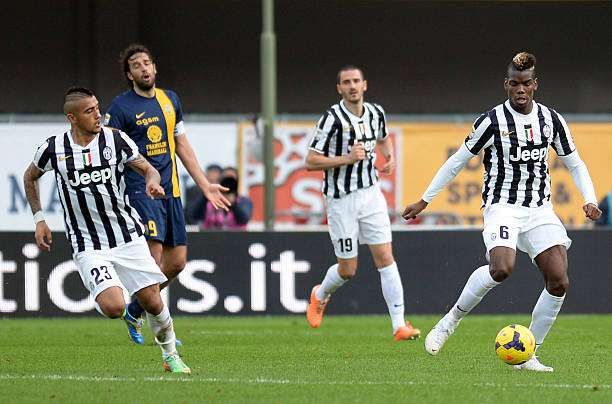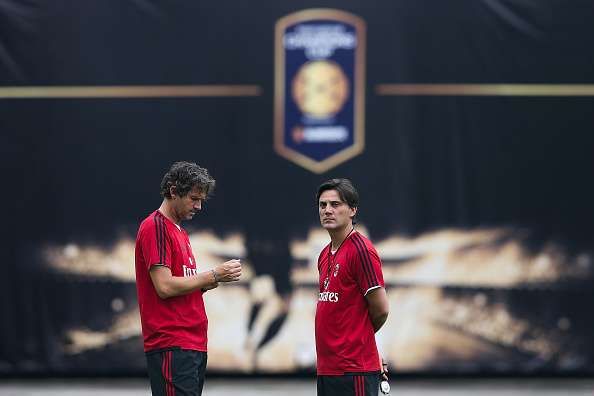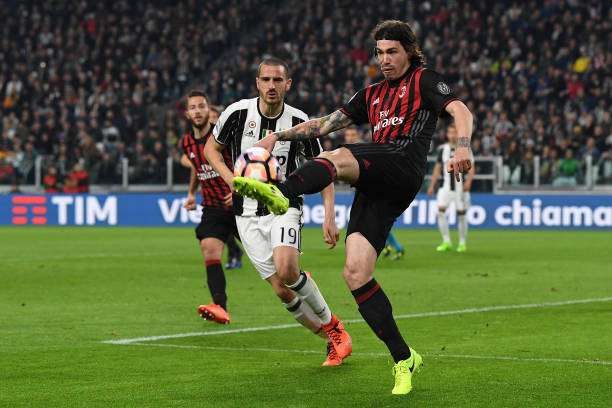
Leonardo Bonucci to Milan: The good, the bad and the ugly
You would have thought that Manchester City signing Kyle Walker for £50 million would be the most absurd thing you would hear in the day. However, on the very same day, Leonardo Bonucci, the de facto best defender in the world, was sold to Milan – Juventus' rivals – for £35 million.
Firstly, £50 million for Kyle Walker, £35 million for Leonardo Bonucci. £50 million for Kyle Walker, £35 million for Leonardo Bonucci. £50 million for Kyle Walker, £35 million for Leonardo Bonucci. Damn, even compulsive repetition doesn’t really make it sink in.
Secondly, the fact that Juventus chose to sell to their emerging rivals – no matter what the fee – is, in itself, an unbelievable fact, something that is inscrutable.
This is a resurging Milan we are talking about, one who have already signed some really talented players like Portuguese forward and heir to Cristiano Ronaldo for Portugal, Andre Silva, the tenacious workhorse, Franck Kessie, one of the finest left-backs in Ricardo Rodriguez and a free-kick taking master in Hakan Calhanoglu.
And now, Juventus have sold them a natural leader that could push them forward to glory. In Bonucci, the Old Lady not only had an elite centre-half, but also a born leader that could drive the team with his presence. The fact that Milan named him captain instantly upon his arrival is a testament to his leadership abilities.
So why was he sold and what does it mean?
The Ugly: Rift with Max Allegri
One of the prime reasons for this move, according to some reports, is his apparent rift with manager Massimilano Allegri. The pair could have been seen arguing in Juve’s 4-1 win over Palermo in February where the defender was constantly questioning his manager’s decision.
This didn’t go down well with the Italian manager as he, in a bid to show that he is the boss and his decisions must be respected, dropped Bonucci from the matchday squad against Porto in the Champions League. Subsequently, Juventus won the game 2-0 and qualified for the next round of the competition without their main man in defence.
After that, the pair somehow resolved their differences and Bonucci was one again brought into the team. However, according to La Stampa and many other publications, at half time of the Champions League final, Leonardo Bonucci singled out Paulo Dybala for his inability to contain Marcelo.
Allegri protected his star and so did Andrea Barzagli as he came to the Argentine’s defence by questioning Bonucci’s hand in Real Madrid’s first goal. Things spiralled out of control as Allegri had to intervene to stop matters from getting worse.
The following day, Allegri met with the board and announced that he would not be signing a new contract as long as Dani Alves – who initiated the quarrel with Dybala – and Leonardo Bonucci were in the team.
But here’s the thing: where does this put Juventus among the elite European clubs?
The Bad: Juventus can’t be counted as an European elite
Over the last few years, the Old Lady have lost some of their important players to European rivals. Paul Pogba, Alvaro Morata, Carlos Tevez and Arturo Vidal are just some of the star players that the Turin outfit have lost over the years.
With Alex Sandro also pushing for a move, can Juventus really be classified as a European super-power given that players are essentially using them as a springboard to plunge them towards the top dogs of Europe?
In the case of Leonardo Bonucci, it was more of a decision from Allegri than the player wanting to leave. Since Bonucci didn’t want to relocate outside Italy, Juventus’s hands were seemingly tied. Or were they?
Tell me something: would Real Madrid have sold Sergio Ramos to Barcelona or Atletico Madrid under ANY circumstances? Or Gerard Pique to Real Madrid?
Juventus’ inability to keep their players takes them out of the equation of Europe’s top-most clubs, but their continuous growth despite the losses is also a testament to their strength.
The entire midfield of Paul Pogba, Claudio Marchisio and Arturo Vidal has been replaced by the slick and industrious pairing of Miralem Pjanic and Sami Khedira. Gonzalo Higuain was bought to replace Alvaro Morata while Alex Sandro replaced the outgoing Patrice Evra.
Juventus do exceedingly well when it comes to reshaping their squad after selling their star players – and they will do the same with Bonucci – but once again: can a selling club really be counted as an elite?
The Good: Rise of Milan and Serie A
A part of the reason why players don’t stay at Juventus after rocketing themselves to stardom is because of the poor quality of the league. Long gone are the days when players actually aspired to play in the Serie A. These days, Serie A is a springboard for the Spanish and English leagues, respectively.
And Juventus, despite being a European finalist two times in the last three years, are also suffering from it.
Bonucci’s shift might be a great loss for Juventus in the short-run, but it could reap massive rewards in the long-term.
With the acquisition of Bonucci and Matteo Musacchio, Milan now have the strength in depth in defence which is so necessary to challenge for titles.
The Rossoneri have already spent £147 million in the window and are likely to complete moves for Lazio midfielder, Lucas Biglia, and a star striker – most notably, Andrea Belotti. With these moves, the 7-time European winners will have a very neatly assembled squad that is led by the right man.
In 2004, Bayern Munich paid a loan of £1.6 million to a near-bankrupt Borussia, albeit with an interest rate. In the end, it helped save the Ruhr outfit from going completely bankrupt, a move that perhaps saved the club.
Juventus’s sale of Bonucci to Milan for a puny £35 million when Kyle Walker was sold for £50 million on the same day (I just can’t seem to get over this, hence the incessant repetition) is something that is unfathomable to many.
It brings about a lot of questions. Where does this leave Juventus? How do they replace the best defender in the world? Can they really be regarded as a European super-giant after failing to keep hold of their star players?
The answers to these will vary depending on who you ask, but one thing is undebatable: Milan are on the rise and are going to be a force to be reckoned with in the future.
Who knows, this might just improve the quality of the league and the players might just want to play in it instead of leaving for abroad – meaning that, in the future, Juventus could keep hold of their star players and become an undisputed elite-level club.
All this after selling your iconic defender. Doesn’t sound too bad now, eh?
